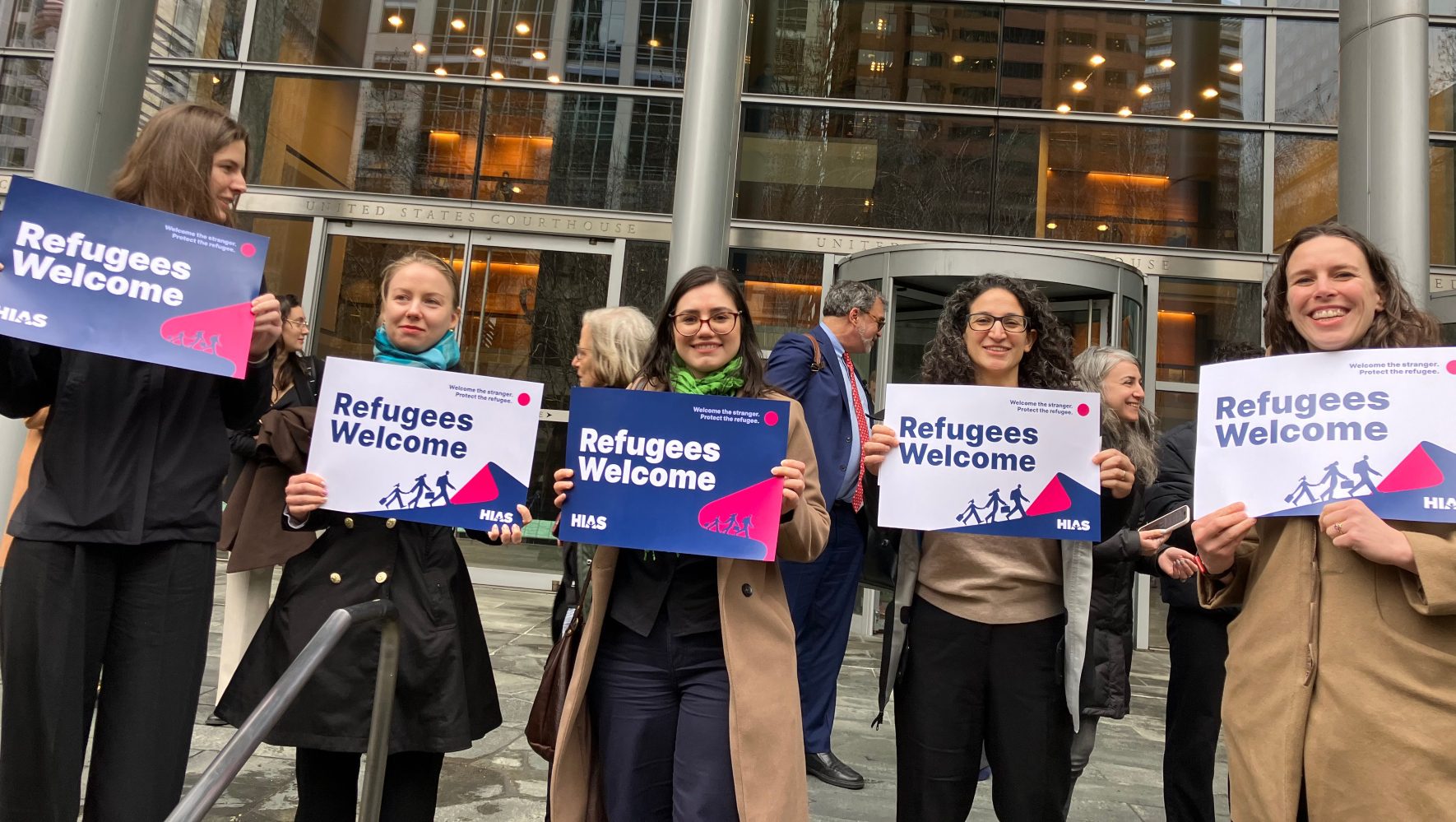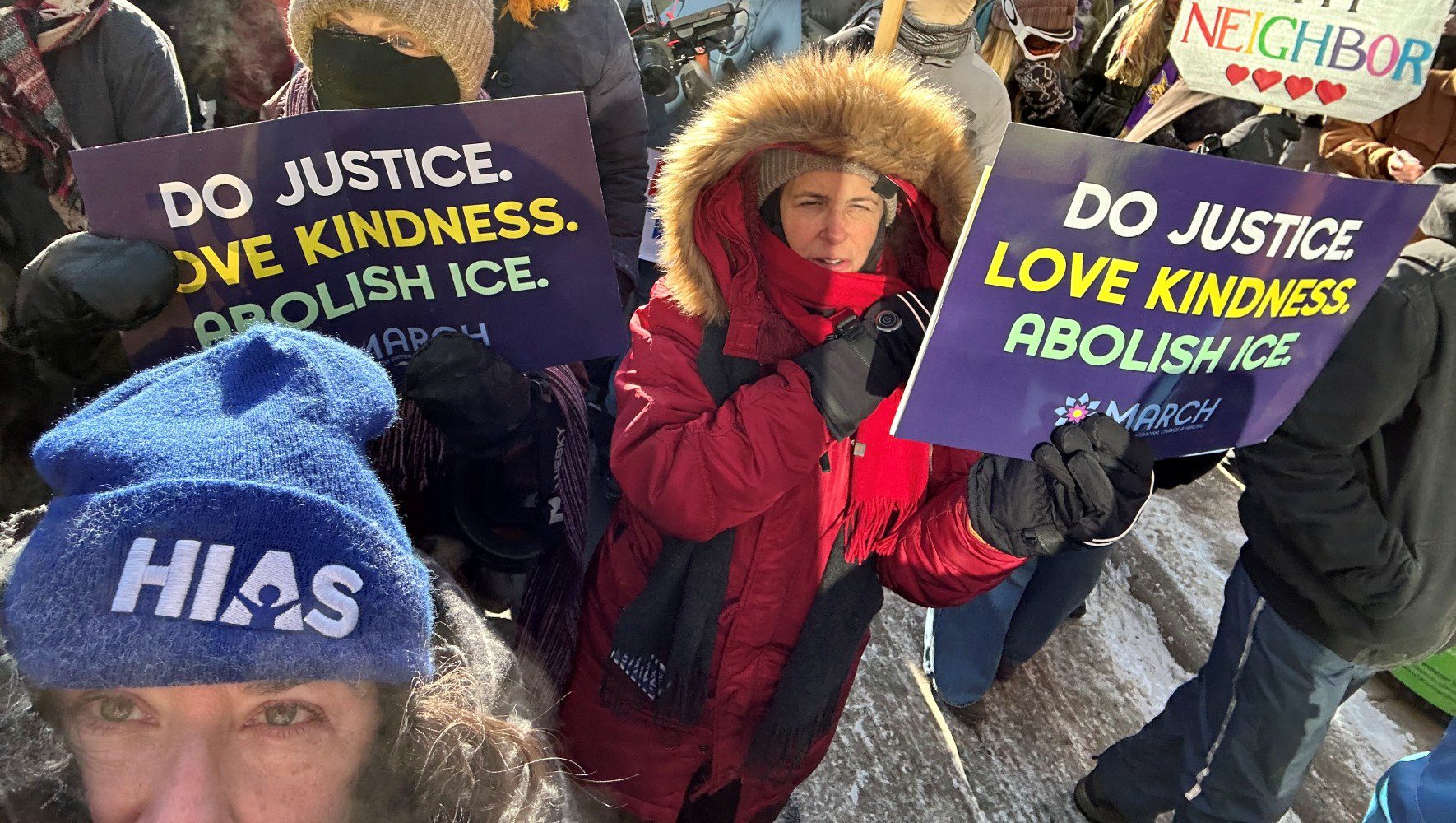U.S. “Uniting for Ukraine” Program May Help 100k, but Concerns Remain
By Ayelet Parness, HIAS.org
Apr 26, 2022
Over 1,300 viewers joined HIAS’ April 25 briefing call about the Biden Administration’s new plan to bring 100,000 people displaced by the war in Ukraine to the U.S. – a plan so new, in fact, that the website detailing the plan only went live during the call.
Uniting for Ukraine, first announced April 21, allows individuals in the U.S. to sponsor people fleeing the war in Ukraine to join them in the U.S. for up to two years. While the announcement also referenced accepting some Ukrainians through existing U.S. refugee programs — which includes expediting members of religious minorities arriving through the Lautenberg Program — those details are fairly scant, noted Melanie Nezer, HIAS’ Senior Vice President for Public Affairs.
Most who come to the U.S. under the new sponsorship program will receive humanitarian parole, a temporary legal status which does not grant them refugee benefits or provide a pathway to permanent residence. This reduces people’s agency and ability to plan for the future, according to Nezer.
“The premise is that Ukrainians want to go home, so let's give them temporary status to come here,” she shared. “Well, refugees want to go home, not just Ukrainian refugees. But the question is, can they go home?”
While HIAS was glad to hear about pathways for some Ukrainians to come to the U.S., the organization has a number of concerns about the program, added Naomi Steinberg, HIAS’ Vice President for Policy and Advocacy. She called for more transparency around how the U.S. Refugee Admissions Program (USRAP) would be used to assist vulnerable populations.
Steinberg also noted that the announcement indicated that Ukrainians seeking asylum at the U.S.-Mexico border would now be turned away and referred to the Uniting for Ukraine program. This is troubling, she said, because seeking asylum is “a legal right that is in no way tied to other programs; just because one new program exists doesn’t mean that people shouldn’t be able to exercise their legal right to seek protection.”
In addition to direct sponsorship, there will be many ways for communities and individuals to get involved in supporting newcomers from Ukraine, said Merrill Zack, HIAS’ Vice President for Community Engagement. These could involve helping locate affordable housing or providing financial support to new arrivals.
“Most sponsors are likely to need help,” said Zack. “Resettlement and integration into communities, whether for two years or for forever, is hyperlocal. It’s personal, it’s communal, and as HIAS knows from our many, many years of working with those seeking safe haven here, essential support comes in a great variety of forms.”
Zack also shared that a modified version of HIAS’ Welcome Circles program is likely to be used to support those fleeing the war in Ukraine, once more is known about the logistics of the government program.
As new details emerge about the Uniting for Ukraine plan, HIAS will continue to provide updates on the ways individuals can help, whether through sponsorship, volunteering, or advocacy.
Want to stay in the loop on how you can help? Fill out this form.



